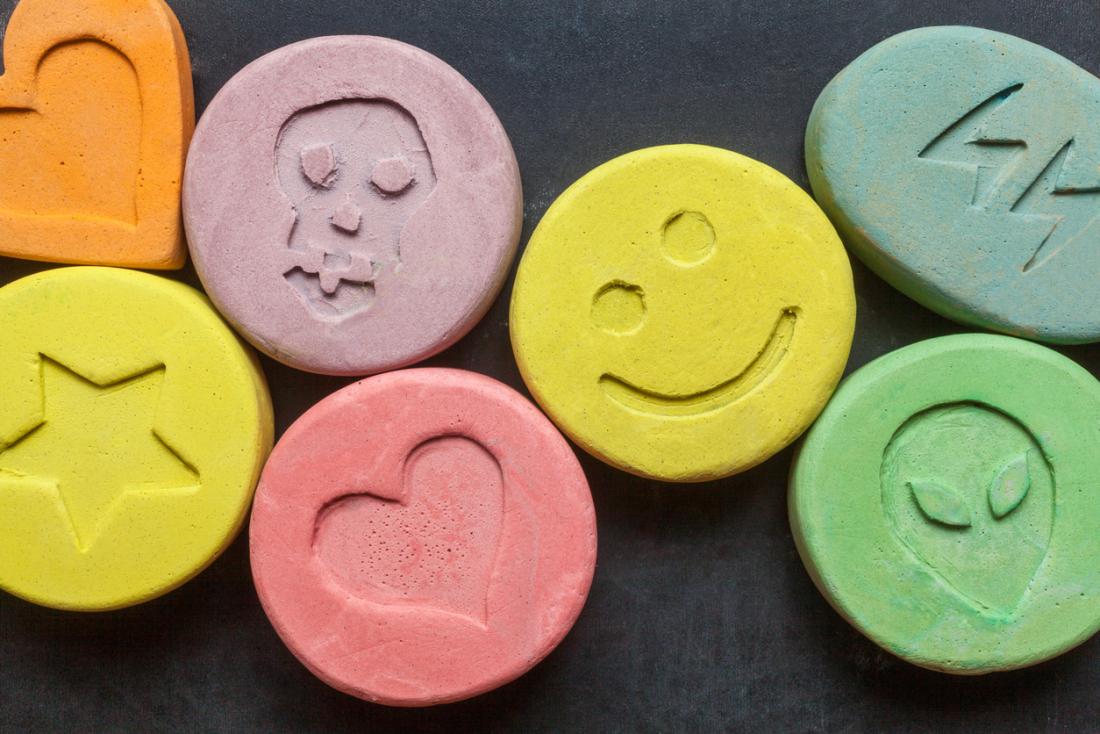Molly, also known as MDMA, can cause dehydration, hyperthermia, and heart problems. Long-term use may lead to brain damage and mental health issues.
Molly, or MDMA, is a popular recreational drug often used in party settings. While it can induce feelings of euphoria and increased energy, its use comes with significant health risks. Short-term effects include dehydration, hyperthermia, and cardiovascular strain, which can be life-threatening.
Long-term use may result in severe mental health issues such as depression, anxiety, and cognitive impairment. It also poses risks of addiction and dependence. Understanding these health problems is crucial for making informed decisions about drug use. Always consult healthcare professionals for advice and support related to substance use and its potential dangers.

Credit: www.medicalnewstoday.com
Introduction To Molly Health Problems
Mollies are colorful and lively fish, popular in home aquariums. Despite their beauty, they can face several health issues. Understanding these problems helps in keeping them healthy.
Common Health Concerns
Mollies can suffer from various health problems. Some of the most common include:
- Ich: Ich is a common parasite causing white spots on the fish.
- Fin Rot: This bacterial infection leads to rotting fins and tails.
- Swim Bladder Disease: Affects the fish’s ability to swim properly.
- Velvet Disease: Causes a gold or rust-colored dust on the fish’s body.
Importance Of Awareness
Being aware of molly health problems is crucial. Early detection helps in timely treatment. Healthy mollies are a joy to watch and enhance the beauty of your aquarium.
Regular monitoring and proper care reduce health risks. Understanding symptoms and treatments can save your fish.

Credit: www.sciencedirect.com
Addiction And Dependency
Molly, also known as MDMA or ecstasy, is popular at parties and clubs. Many people use Molly for its euphoric effects. But, it can lead to serious addiction and dependency. Understanding the signs and treatment options is crucial for recovery.
Signs Of Addiction
Recognizing the signs of Molly addiction early is essential. Here are some common signs:
- Strong cravings for Molly
- Using Molly despite knowing the risks
- Neglecting daily responsibilities
- Spending a lot of money on Molly
- Feeling anxious or depressed without Molly
Treatment Options
Several treatment options can help with Molly addiction. Here are some effective methods:
- Detox Programs: These programs help remove Molly from the body safely.
- Counseling: Therapy can help understand the root causes of addiction.
- Support Groups: Joining groups like Narcotics Anonymous can provide support.
- Medication: Some medicines can help reduce cravings and withdrawal symptoms.
Recovery from Molly addiction is possible. Seek help early for the best results.
Mental Health Issues
Molly, also known as MDMA, can cause serious mental health problems. People using Molly often face challenges like anxiety, depression, psychosis, and hallucinations. Understanding these issues can help in managing and preventing them.
Anxiety And Depression
Molly can trigger severe anxiety and depression. Users may feel extremely nervous and worried. They might also experience intense sadness and hopelessness. These feelings can last for days or weeks.
Common symptoms of anxiety and depression include:
- Restlessness
- Constant worry
- Trouble sleeping
- Loss of interest in activities
- Feeling tired all the time
Seeking help from a mental health professional is essential. Therapy and medication can assist in managing these symptoms.
Psychosis And Hallucinations
Molly can also lead to psychosis and hallucinations. Psychosis is a condition where people lose touch with reality. Hallucinations involve seeing or hearing things that are not there.
Symptoms of psychosis and hallucinations include:
- Delusions
- Seeing or hearing non-existent things
- Confused thinking
- Strange behavior
If someone shows these signs, it’s crucial to seek immediate medical help. Early intervention can prevent further complications and promote recovery.
| Mental Health Issue | Key Symptoms |
|---|---|
| Anxiety and Depression | Restlessness, constant worry, trouble sleeping, loss of interest, fatigue |
| Psychosis and Hallucinations | Delusions, seeing or hearing things, confused thinking, strange behavior |
Understanding and recognizing these symptoms can help in taking timely action. Proper care and support are vital for anyone facing these mental health challenges.
Physical Health Complications
Molly, also known as MDMA or Ecstasy, can cause serious physical health problems. These complications can be life-threatening and need immediate medical attention. Here we discuss some major physical health complications.
Cardiovascular Issues
Using Molly can severely impact the cardiovascular system. It can cause increased heart rate and high blood pressure. These conditions can lead to heart attacks or strokes.
Here are some common cardiovascular issues caused by Molly:
- Tachycardia (rapid heartbeat)
- Hypertension (high blood pressure)
- Chest pain
- Arrhythmias (irregular heartbeats)
These issues can be particularly dangerous for individuals with pre-existing heart conditions. Regular use of Molly increases the risks significantly.
Liver And Kidney Damage
Molly can also cause significant damage to the liver and kidneys. It can lead to acute liver failure and kidney failure. These conditions can be fatal if not treated immediately.
Symptoms of liver and kidney damage include:
- Yellowing of the skin and eyes (jaundice)
- Severe abdominal pain
- Dark urine
- Swelling in legs and ankles
Table showing the effects of Molly on liver and kidney:
| Organ | Effects |
|---|---|
| Liver | Jaundice, liver failure, abdominal pain |
| Kidneys | Kidney failure, dark urine, swelling |
Early detection and treatment can save lives. It is crucial to seek medical help if you experience any of these symptoms.
Neurological Effects
Molly, often known as MDMA, is a popular recreational drug. It can have severe effects on the brain. These effects can be long-lasting and damaging.
Cognitive Impairment
Regular use of Molly can lead to cognitive impairment. This means the brain’s ability to think and remember is reduced. Users may find it hard to focus. They may also struggle with memory loss.
Studies show that Molly affects the brain’s neurons. These neurons are crucial for learning and memory. Damage to these neurons can be permanent.
| Effects | Description |
|---|---|
| Memory Loss | Users may forget recent events. |
| Difficulty Focusing | Users may find it hard to concentrate. |
| Learning Problems | Users may struggle to learn new things. |
Seizures And Tremors
Molly can also cause seizures and tremors. Seizures are sudden, uncontrolled electrical disturbances in the brain. They can lead to convulsions. Tremors are involuntary muscle movements.
These effects can be very dangerous. They can lead to serious injuries. In severe cases, seizures can be life-threatening.
- Seizures can cause loss of consciousness.
- Tremors can make it hard to perform daily tasks.
- Both conditions may require emergency medical attention.
Social And Behavioral Impact
Molly, also known as MDMA, can cause serious health problems. These issues extend beyond physical health. The social and behavioral impact is significant. It affects relationships, work, and school performance.
Relationship Strain
Molly use can cause strain in relationships. This can be with friends, family, or partners. Trust can break down easily. Users may lie about their drug use. They might also neglect their loved ones. This creates distance and hurt feelings.
Arguments may become more frequent. Users might become more irritable or withdrawn. This can lead to breakups or estrangement from family. The emotional toll is high. Both the user and their loved ones suffer.
Work And School Performance
Molly affects work and school performance. Users may find it hard to focus. Their productivity drops. They may miss deadlines or skip classes. This leads to poor grades or job performance.
Employers and teachers notice these changes. They may take disciplinary action. This can include suspension or job termination. The long-term effects are severe. Users might struggle to find new jobs or get back into school.
The impact on mental health is also notable. Users may experience anxiety or depression. This makes it even harder to perform well in work or school. The cycle becomes difficult to break.
| Impact | Details |
|---|---|
| Relationship Strain | Trust issues, increased arguments, emotional distance |
| Work and School Performance | Missed deadlines, poor grades, job termination |
- Trust issues: Users may lie about their drug use.
- Increased arguments: Users become irritable or withdrawn.
- Missed deadlines: Users struggle to focus.
- Poor grades: School performance drops significantly.
- Job termination: Employers take disciplinary action.
Prevention And Education
Preventing Molly health problems is essential. Awareness and education play key roles. By informing people, we can reduce risks. This section covers campaigns and school programs.
Awareness Campaigns
Awareness campaigns educate the public about Molly’s dangers. They spread information through various channels. These include social media, TV, and community events. Campaigns use simple messages. They aim to reach a wide audience.
- Social media posts
- TV commercials
- Community workshops
Campaigns often feature real-life stories. These stories make the dangers relatable. They also provide tips for avoiding Molly. Public engagement is crucial for success. Volunteers often help spread the word. They distribute flyers and host informational booths.
School Programs
School programs educate children about drug dangers. These programs start at a young age. They use age-appropriate materials. Teachers and experts lead these sessions. They provide facts about Molly and its effects.
Programs often include interactive activities. These engage students and make learning fun. Activities can include role-playing and group discussions. Schools also invite guest speakers. These speakers share their experiences with drugs.
| Grade Level | Program Features |
|---|---|
| Elementary | Basic drug facts, simple activities |
| Middle School | Interactive sessions, guest speakers |
| High School | In-depth discussions, real-life stories |
Parents are also involved. Schools send information home. This ensures parents are aware of the programs. Parental involvement reinforces the message.
Support Systems
Dealing with Molly health problems can be overwhelming. Support systems are crucial for managing these challenges. They provide emotional and practical help. Effective support systems include counseling services and support groups. Let’s explore these options further.
Counseling Services
Counseling services play a vital role in managing Molly health problems. Professional counselors provide a safe space to share feelings. They offer coping strategies and emotional support. Here are some benefits of counseling services:
- Improved emotional well-being
- Better stress management
- Enhanced coping skills
Many organizations offer counseling services. It’s important to find a licensed and experienced counselor. Regular sessions can help address underlying issues and improve overall health.
Support Groups
Support groups bring people with similar challenges together. They provide a sense of community and understanding. Sharing experiences can be incredibly healing. Here are some advantages of joining support groups:
- Reduced feelings of isolation
- Shared coping strategies
- Emotional and practical support
There are various types of support groups. Some focus on specific health issues, while others address general well-being. Online and in-person options are available. Finding the right group can make a significant difference.
| Support System | Key Benefits |
|---|---|
| Counseling Services | Improved emotional well-being, stress management, coping skills |
| Support Groups | Reduced isolation, shared strategies, emotional support |
Both counseling services and support groups are essential for managing Molly health problems. They provide different types of support, but both are invaluable. Consider exploring these options to find the best fit for your needs.
Conclusion And Future Outlook
The health of Molly fish is a crucial topic for pet owners. Understanding their health problems helps ensure they live long, healthy lives. Let’s explore ongoing research and community efforts to improve Molly fish health.
Ongoing Research
Scientists constantly study Molly fish health issues. Their findings help improve care methods. Here are some key areas of research:
| Research Area | Purpose |
|---|---|
| Disease Resistance | Find ways to boost immune systems. |
| Water Quality | Understand how water affects health. |
| Nutritional Needs | Develop better diets for Molly fish. |
Community Efforts
The fish-keeping community plays a vital role in Molly health. They share tips and experiences to help others. Here are some ways the community contributes:
- Forums: People ask questions and get advice.
- Social Media Groups: Members share updates and tips.
- Local Clubs: Clubs hold meetings and events.
Community efforts and ongoing research offer a brighter future for Molly fish health. Together, we can ensure these beautiful creatures thrive.

Credit: positivechoices.org.au
Frequently Asked Questions
What Is The Problem With Molly?
Molly is experiencing frequent headaches and fatigue. She also has trouble concentrating and feels unusually irritable.
What Is Molly Short For?
Molly is short for Mary or Margaret. It is a common diminutive used in English-speaking countries.
Which Drug Causes A Person To Increased Energy Pleasure Emotional Warmth And Distorted Sensory And Time Perception?
MDMA, also known as Ecstasy or Molly, causes increased energy, pleasure, emotional warmth, and distorted sensory and time perception.
What Do Mollies Look Like?
Mollies are small, colorful freshwater fish with oval bodies and fan-shaped tails. They come in various colors like black, silver, and orange. Mollies have a peaceful nature and thrive in community tanks. Their vibrant appearance makes them popular among aquarium enthusiasts.
Conclusion
Caring for Molly’s health problems requires vigilance and love. Regular vet check-ups ensure early detection of issues. Maintain a balanced diet and provide daily exercise. Address any symptoms promptly to keep Molly happy and healthy. By staying proactive, you can ensure a long, joyful life for your beloved pet.
